
How to Search for SEO Keywords for Travel and Tourism
Published on January 02, 2024by BotsterAt a time when remote working and digital nomadism are the order of the day, the travel and tourism industry is expected to show new heights of growth in the coming years. But to get a sizable piece of that cake, you must know how to curate a top travel keywords list for your content strategy.
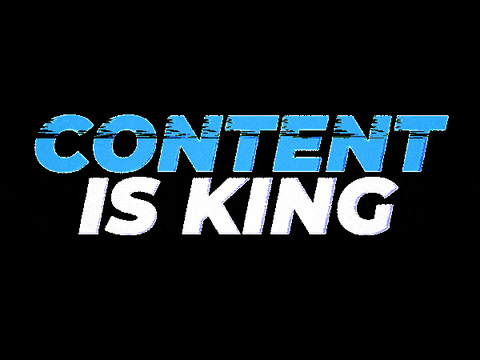
Building your content strategy around travel SEO keywords has several benefits:
- It makes your content appealing to search engines
- It guarantees that you’re solving actual problems for people
- It helps attract your target audience
Within the next few minutes, I will describe several easy-to-use automation tools for finding the best-performing travel keywords and boosting the SEO visibility of your tourism website.
In this step-by-step guide, you’ll learn:
- How to find top-notch travel SEO keywords for meta tags
- How to curate a travel-related keywords list for your site pages
- How to find SEO keywords for travel blog posts
- How to select the MOST SEARCHED travel keywords on Google
By the end of this guide, you’ll have a database of travel agency keywords to use in your SEO strategy that looks like this:
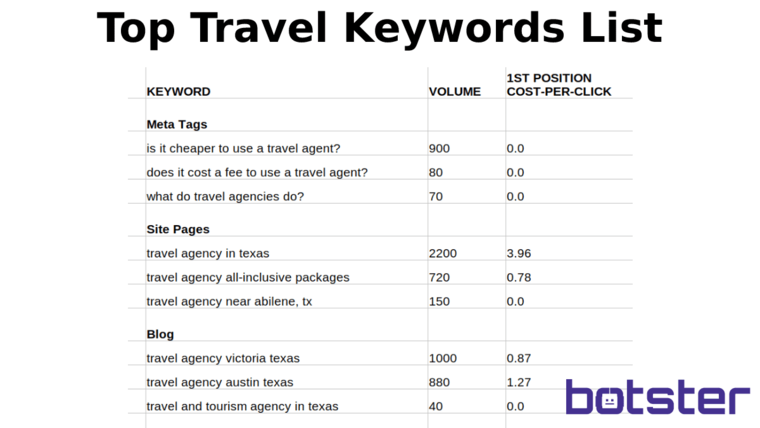 To put this guide in perspective and aid learning, I will act as an imaginary Texas-based travel agency and find the best SEO keywords for travel and tourism business.
To put this guide in perspective and aid learning, I will act as an imaginary Texas-based travel agency and find the best SEO keywords for travel and tourism business.
Without further ado, let’s get started!
Where to FIND travel keywords for SEO
Finding top-notch travel SEO keywords for meta tags
What are meta titles and meta descriptions?
Meta titles and descriptions are elements that summarize the content of a web page. They are displayed in the search engine results pages (SERPs) and help users decide whether to click on a link or not.
Here's a breakdown of each:
Meta title:
- This is a concise, descriptive title displayed as the clickable headline for your page in search engine results pages (SERPs). The best SEO travel keywords to use in titles are often problem-solving.
- It should be no longer than 70 characters to avoid truncation by search engines. Keep it short and straightforward.
- SEO keywords for travel relevant to your page's content should be included, as they can help search engines understand what your page is about and potentially improve your ranking for those keywords.
- Think of it as a mini-ad for your page. Aim to accurately summarize its content and entice users to click.
Meta description:
- This is a brief summary of your page's content, typically displayed beneath the title in SERPs.
- It should be around 155-160 characters to ensure full display.
- A compelling meta description can significantly impact your click-through rate (CTR) by telling users what they can expect to see on your page and highlighting its value proposition.
- Include some target keywords for travel websites, but prioritize clarity and entice users to click.
Why is it important to enrich meta tags with travel-related keywords?
If you enrich meta titles and descriptions with travel-related keywords, they can help search engines decide that your page is a good resource to display to searchers, thereby increasing your web traffic.
The first automation tool I’ll be introducing in this guide is the Meta Tags Extractor. This tool can help export meta tags and other important SEO parameters from competitors’ websites.
To gain access to the Meta Tags Extractor, you must first create a FREE Botster account:
 Registration is fast and easy, and your credit card is not even required!
Registration is fast and easy, and your credit card is not even required!
Once your account is registered, follow the steps below to export travel keywords for SEO using the Meta Tags Extractor:
- Launch the Meta Tags Extractor by clicking on “Start bot”:

- Give the job a name to make it unique and specify a folder. (I’ll name mine “Texas travel keywords list”):
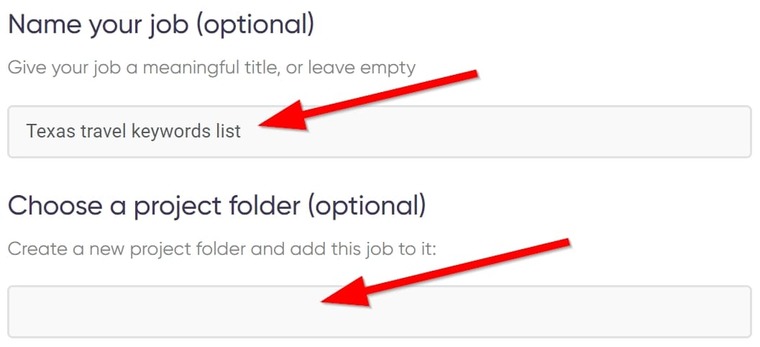
- In the field titled “Your data”, paste the websites of other travel agencies in your location to find top travel keywords in their meta tags.
💡 Life hack: You can find competitor websites using the Google Local Business Finder.
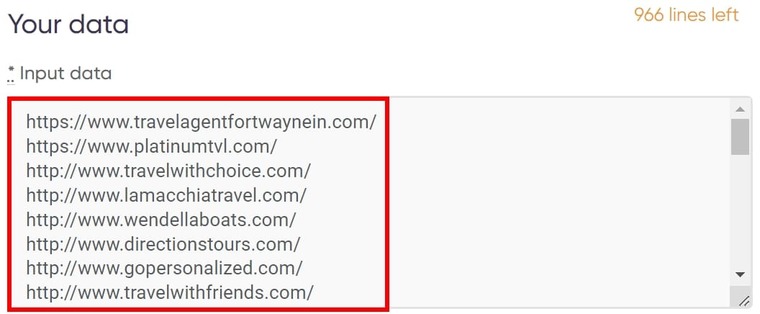
- Set up your notification options, making sure you tick “Attach results to the notification email”:
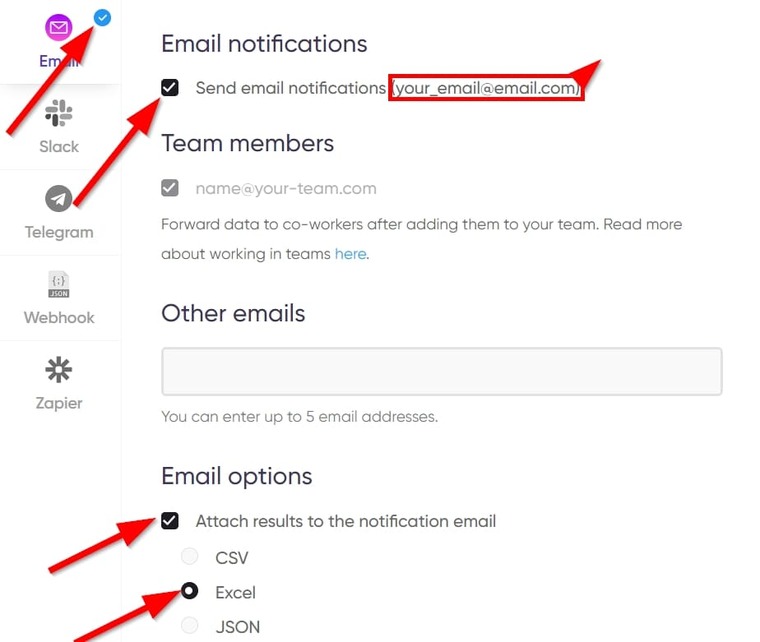
- Finally, click on “Start this bot” and you’re done! Easy peasy!
 The Meta Tags Extractor is now set to fetch your competitors’ meta tags so you can find keywords related to travel within them.
The Meta Tags Extractor is now set to fetch your competitors’ meta tags so you can find keywords related to travel within them.
Results
Once the Meta Tags Extractor is done, you will receive an email notification:
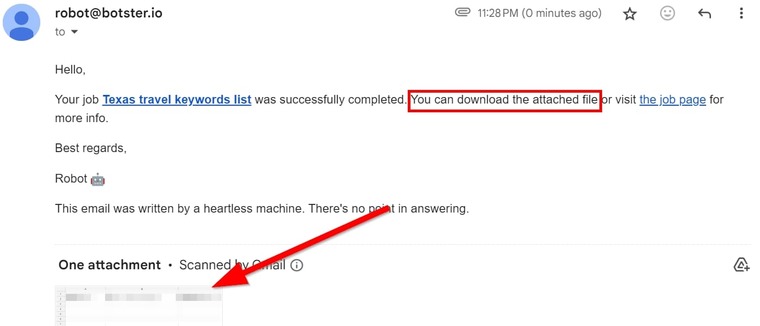 Open the results in Excel to see meta tags rich in travelling keywords:
Open the results in Excel to see meta tags rich in travelling keywords:

Tips
Below are some tips to help you make the most of the extracted data:
- Fetch the search volume of the extracted keywords using the Search Volume and CPC Finder as described below.
- Use the keywords with the highest search volume in meta titles.
- Use the keywords with somewhat lower search volume in meta descriptions.
Making up a travel related keywords list for your site pages
Why is it important to enrich site pages with travel SEO keywords?
Using relevant and well-researched keywords in your pages can help match your content with the search intent of your target audience. This can in turn increase both the quality and quantity of your website traffic, as well as your brand exposure.
The best keywords for travel agency sites are the ones searchers use to find whatever info they are looking for. So if someone searches “Is it expensive to go through a travel agent?”, using that term in your content can help you rank high.
That is why in this step, we’ll be extracting the most searched travel keywords with the help of the Google Search Suggestions Scraper. This bot can help extract search suggestions from Google, Bing, Yahoo, and YouTube.
Search suggestions are auto-complete search terms that pop up when you start to type in your search phrase into search engines:
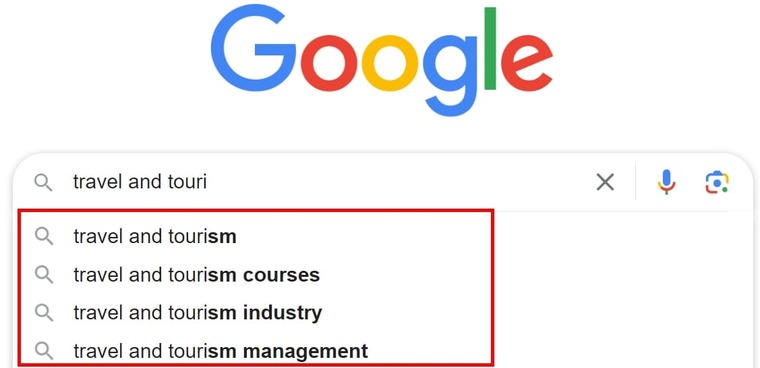 Search engines suggest these phrases because they have a high search volume. So that makes it a good source of the most searched travel keywords on Google.
Search engines suggest these phrases because they have a high search volume. So that makes it a good source of the most searched travel keywords on Google.
Setting up the Google Search Suggestions Scraper is quite straightforward. The steps are outlined below:
- Launch the Google Search Suggestions Scraper's start page and name your job. I’ll name this one “Texas travel keyword search suggestions”.
- Next, select your desired target region and language. I'm still looking for keywords for travel agency sites in Texas:

- Select the search methods you want the tool to adopt:

- Next, set a desired search depth:

- Now, select other search engines if you would love to extract their data too:

- Next, input your keywords. You can input multiple keywords but each one must go on a new line:
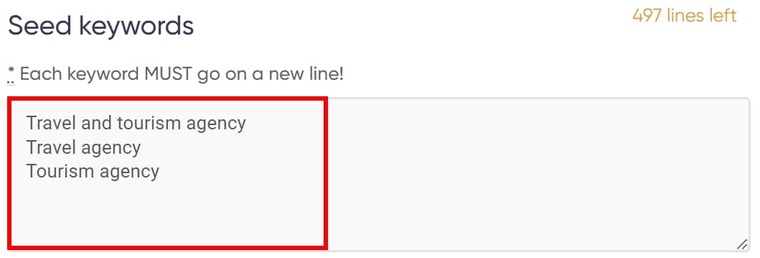
- Set your notification options, then click on “Start this bot” to launch the tool into action. This also launches the “My jobs” page to display something like this:
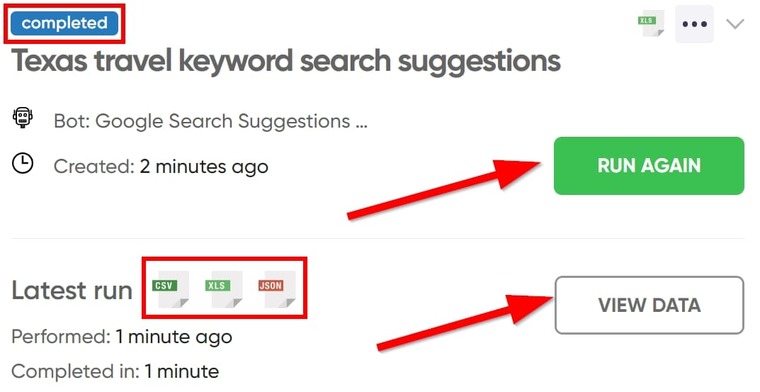 And that's it! Just a few moments to set this up, and you can have a travel-related keywords list with well over 200 phrases on it just like that!
And that's it! Just a few moments to set this up, and you can have a travel-related keywords list with well over 200 phrases on it just like that!
Video guide
Here’s a short video walkthrough of launching the Google Search Suggestions Scraper:
Results
You can download the results extracted by the Google Search Suggestions Scraper by clicking on the XLS logo. Opening the file on your computer should display the top searched travel keywords thus:
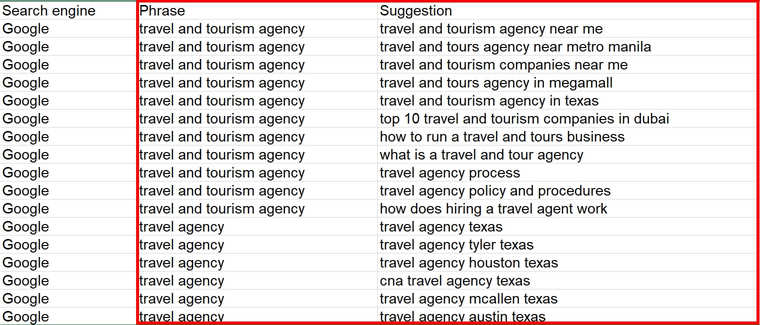
Tips
- Carefully select and use these keywords in the texts on all of your site pages to make them SEO-optimized.
- Read my guide on the best Ahrefs alternative for more keyword research tips.
Finding SEO keywords for travel blog posts
Nearly every successful site has a blog. This is because the blog is an excellent way to attract site traffic and build authority in the industry.
Blogs are meant to solve problems for actual users, but if your posts are not enriched with SEO keywords for travel blogs, they won’t rank high on Google, and people won’t be able to find them.
One of the ways to find the perfect travel blog keywords is to check what exactly people are searching for online. For this, we’ll be using the Google People Also Ask and Related Searches Exporter.
Here’s how to set up the Google People Also Ask and Related Searches Exporter to scrape keywords for blogs on travel for you:
- Launch the tool's start page and name your job as we did earlier.
- Enter your search keywords into the field titled “Search queries”. You can use new keywords or copy and paste the results from the previous extraction:
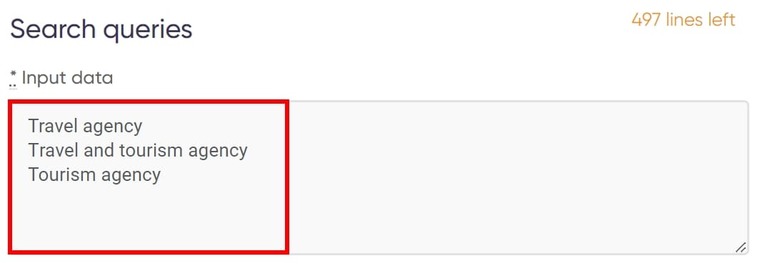
- Next, select which snippet you wish to extract:

- Set your custom options as needed:
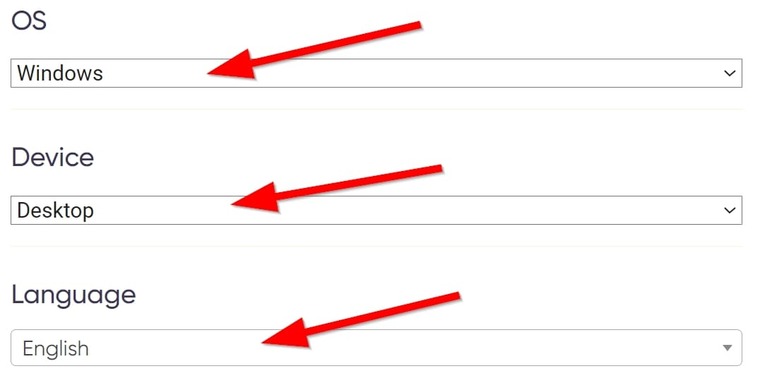
- Also, select your desired location for the search. Ideally, this should be the city or state you’re targeting. So mine is still Texas:
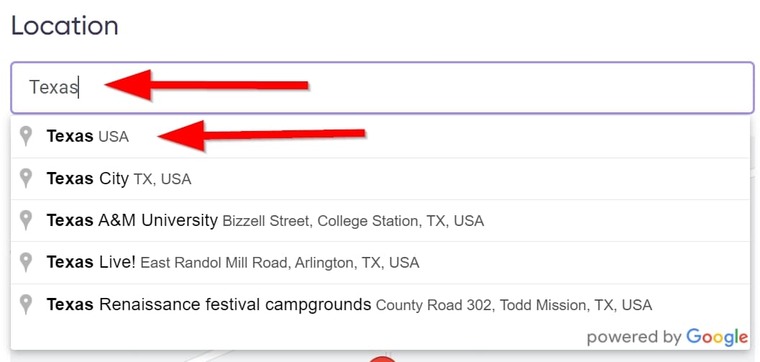
- Now you can start the bot and wait while it gathers your SEO keywords for travel agency sites.
Video guide
Below is a video guide I made for this tool in case you’d like to watch me use it (I’m starting to speak about the Google People Also Ask and Related Searches Exporter at 07:19):
Results
The results of this extraction should look similar to this:
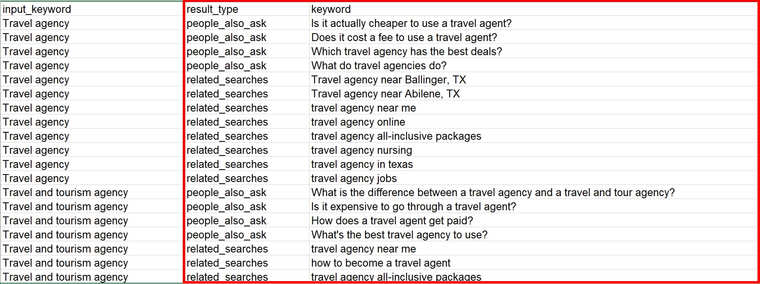
Tips
- The questions extracted from the “People also ask” widget are searched by actual people. So use them as blog topics (i.e. headings) to match your potential clients’ search intent.
- Use the keywords extracted from the “Related searches” widget randomly in the blog texts.
- Read my guide on lead generation for lawyers for more blogging tips.
How to single out the MOST SEARCHED travel keywords on Google
One final thing we have to do now is to pick the keywords with the highest search volume for use in our SEO strategy. The best keywords for travel blog posts are those with a high search volume but low competition.
Travel blog SEO keywords having high volume means they are regularly searched on Google. Having low competition means there’s little competitive effort over them.
Using the best travel keywords with high search volume and low CPC in SEO and advertising can grow your brand awareness as well as your customer base faster than you’d imagine.
For this step, we’ll be using the Search Volume and CPC Finder. This tool can fetch cost per click (CPC) and search volume data for keywords on Google in bulk.
Setting up the Search Volume and CPC Finder involves just one step, meaning that it won’t take you up to 10 seconds to get it over with:
- On the Search Volume and CPC Finder’s start page, paste all the keywords you’ve extracted so far into the field titled “Search keywords and phrases”:
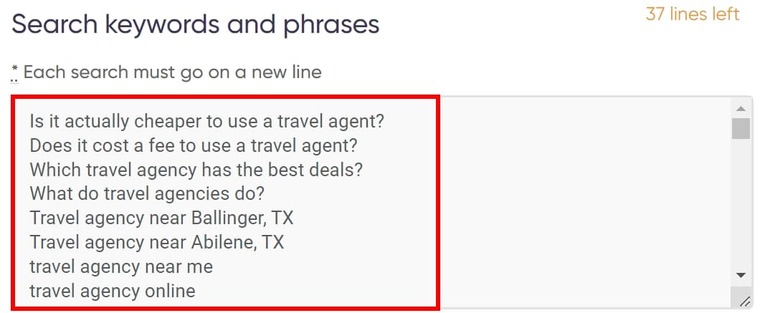
- Now click on “Start this bot” and you’re done!
Video guide
Watch a quick video tutorial on how to use the Search Volume and CPC Finder:
Results
Once the bot is done running, you can download the results file and open it on your computer. You can also separate the keywords into different groups where some go to the meta tags, some to website pages, and others within blogs:

Tips
- Sort the results in descending order by the column “Volume”.
- Remember that long-tail travel keywords (i.e. phrases that contain 4 words and more) match your clients’ search intent most precisely, meaning that their value for your site should not be underestimated despite lower search volume.
- Read my in-depth guide on ways to measure brand awareness where this bot is used for yet another purpose.
Free trial for the travel keyword search tools
Now that you’ve learned how to find the best keywords for travel websites using automation tools, you can boost your online presence with very little effort. At this point, though, you are probably wondering how much it will cost you to extract the top travel keywords list from Google using these tools.
Well, it will blow your mind to find that using all these tools combined costs less than buying a seat near the window on your flight to the Maldives and their benefits are even more enormous than I just showed you!
And because you took the time to read this guide and learn how to find keywords for travel blogger sites so you can rank your business higher on search engines, we are offering you a 7-day free trial that starts right after you open your Botster account.
This means that you gain unrestricted access to the dozens of tools available on Botster. So don't delay any further. Seize this opportunity right now and get started extracting keywords for your travel blog!
Cheers!

